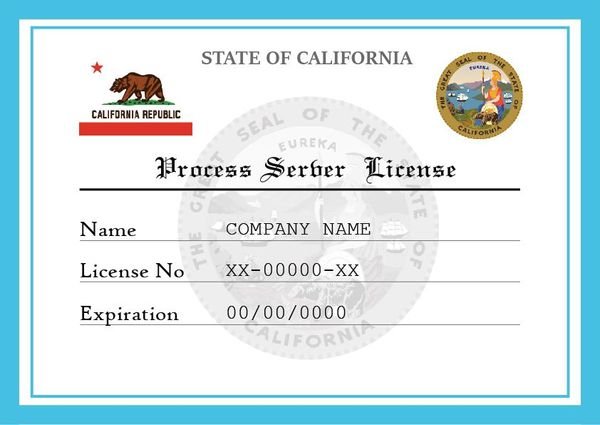If you’re interested in becoming a process server in California, you’re in the right place. In this blog post, we’ll guide you through the steps to become a licensed process server in California, so you can start your new career as soon as possible.
Understand the Role of a Process Server: A process server is responsible for delivering legal documents to individuals or parties involved in a legal case. These documents can include summons, subpoenas, complaints, and other legal paperwork. It’s important to understand the duties and responsibilities of a process server before pursuing this career.
Meet the Requirements: In California, process servers must be at least 18 years old and have no felony convictions.
Obtain a Surety Bond: In California, process servers are required to obtain a $2,000 surety bond from a licensed insurance company. This bond serves as a guarantee that you will perform your duties in accordance with the law.
Get Fingerprinted: As part of the application process, you will need to get fingerprinted by a Live Scan provider or a law enforcement agency. The fingerprints will be submitted to the California Department of Justice and the Federal Bureau of Investigation for a criminal background check.
Submit Your Application: Once you have been fingerprinted and have obtained a surety bond, you can submit your application to your local county office. Be sure to include all required documentation and fees.
Wait for Approval: Your application will be reviewed and you will be notified if any additional information is needed. If your application is approved, you will receive your process server license in person or in the mail.
Get Liability Insurance: While not required by law, liability insurance is highly recommended for process servers. This type of insurance provides coverage in case of accidents or errors on the job. We personally suggest Yergey Insurance or El Dorado Insurance.
Join a Professional Association: Joining a professional association, such as the California Association of Legal Support Professionals or the National Association of Professional Process Servers, can provide valuable networking opportunities and access to educational resources.
Stay Current on Regulations and Best Practices: Once you are licensed and working as a process server, it’s important to stay up to date on any changes to regulations or best practices in the field. This can include attending continuing education courses, networking with other professionals, and staying informed about new technology or techniques.
Becoming a process server in California can be a rewarding and challenging career. With the right education, training, and resources, you can start serving legal documents with confidence and professionalism. Good luck!

